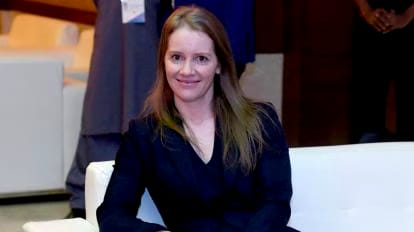
Administration is a thankless job. And if you are in a position for well over 13 years, there is a certain kind of boredom associated with it. You become tired and jaded, and a new beginning is always the best option. For Elena Norman and Hockey India (HI), the parting of ways isn’t bad. She will seek new pastures and try to reinvent the wheel, while the sport will now need to find a new CEO who will ensure that the professionalism associated with the federation continues.
Norman, like everyone else, isn’t perfect. Many called her attitude dictatorial, and employees found her too strict at times. But then, in India, you don’t get work done unless you are a disciplinarian yourself. Anything slightly loose would be perceived as weakness, and Norman had to make sure that she wasn’t taken for granted or for a ride. In doing so, she ruffled feathers and polarised opinion. And eventually had to move on. But then, 13 years is long enough for her to feel she has done her bit for the sport in India.
When she took over, there was no website, no communications team, no archive and no social media. Today, Hockey India has one of the best social media teams in place and even age-group tournaments are wonderfully well covered and reported. Hockey is on television and digital, and the conduct of the national championships meant many more PSUs joined the list of companies invested in hockey, which in turn meant more jobs for hockey players. Clearly, the sport became aspirational because it guaranteed job security and a safe career.
Also Read: Mandhana and Bowlers Shine as RCB Decimate Gujarat Giants in WPL Clash
Ahead of her taking over Indian hockey, the sport wasn’t sports-code compliant. In Norman’s first year, she had to work to ensure all the clauses were adhered to and it served Indian hockey well during its clashes with the International Hockey Federation in 2014-15.
Most importantly, India started hosting tournaments at home during Norman’s tenure as CEO. This was important because hosting competitions meant India could automatically field a team and did not have to qualify. Playing in front of home crowds helped and, needless to say, it allowed Indian hockey to get better. Hosting back-to-back World Cups is a rarity for any country, and India managed to do just that thanks to the support from the government of Odisha.
During the 2012 London Olympics, which happened early on in her tenure, India finished last among the 12 teams. Players were at loggerheads and some even wanted to attack colleagues to get an opportunity to make the first team. The sport was not in great shape and disciplinary issues were rife. Norman managed to get things under control and now, there aren’t too many cases of indiscipline in Indian hockey. Legal cases have lessened and the sport, despite the women’s team not qualifying for Paris, is in reasonably good shape.
In the last one year, Norman wasn’t getting along with HI officials and except Dilip Tirkey, the president who was firmly in her corner, there were few in the establishment who wanted her to continue. Frankly, the separation was on the cards. That it has been done amicably, without any kind of mudslinging in public, is good for Indian hockey.
As a professional, Norman leaves behind a legacy of some strong work done. And anyone who gets work done will have her share of adversaries. She is no different. In fact, if you don’t have adversaries after 13 years as CEO, it means you weren’t really good enough and were there to just safeguard your own position. It is human nature to disagree, and more so if you have held a position for more than a decade.
Tirkey has wished her well and issued a warm parting note. That he is the only one to do so speaks of the ground reality. Norman understood it and decided to move on.
No sport is dependent on an individual. Having said that, individuals build systems which in turn sustain organisations. That’s what Norman tried to do. She leaves with the satisfaction that those systems and structures are now firmly in place, and should sustain the growth of hockey for many years going forward.
For latest cricket news: click here